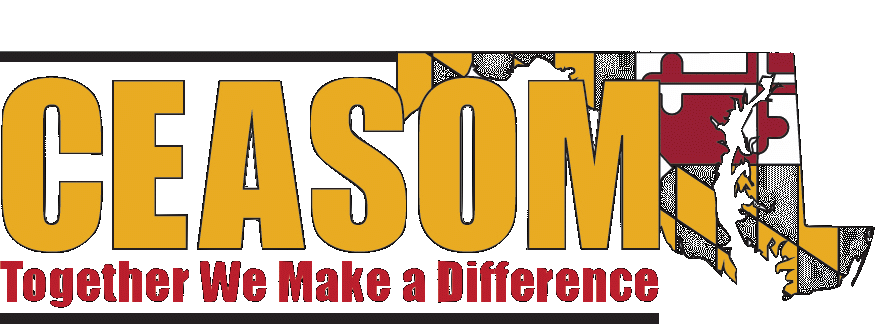Arts Education Collaborators
AEMS regularly collaborates with the following organizations to strengthen the arts sector and provide high quality professional development for educators.
Maryland State Department of Education Office of Fine Arts
Under the leadership of the State Superintendent of Schools and guidance from the Maryland State Board of Education, the Maryland State Department of Education Office of Fine Arts develops and implements standards and policy for education programs from pre-kindergarten through high school.


The Maryland State Arts Council‘s mission is to advance the arts in our state by providing leadership that champions creative expression, diverse programming, equitable access, lifelong learning, and the arts as a celebrated contributor to the quality of life for all the people of Maryland. To carry out its mission, MSAC awards grants to non-profit, tax-exempt organizations for ongoing arts programming and projects. MSAC also awards grants to individual artists, and provides technical and advisory assistance to individuals and groups. MSAC receives its funds in an annual appropriation from the State of Maryland and from grants from the National Endowment for the Arts, a federal agency. The Council may also receive contributions from private, non-governmental sources.

Maryland Citizens for the Arts is a statewide arts advocacy and education organization. Founded over 40 years ago to provide “One Voice for all the Arts in Maryland,” MCA works to highlight the role the arts play in economic vitality of the state and the increased quality of life they provide for all Marylanders. MCA will enhance the cultural and civic benefits of the transformative power of the arts, celebrating the myriad of ways a strong arts sector supports vibrant communities, a full quality education, and a thriving economy. MCA will be a leader among its peers through innovative approaches to arts advocacy for the 21st century.
Working in collaboration with the Maryland State Department of Education Fine Arts Office and the Maryland State Arts Council (MSAC), AEMS administers the Maryland Center for Creative Classrooms (MC3). MC3 is a research-based, professional development series designed to support arts educators in developing skills, knowledge, and dispositions needed to lead quality arts-based instruction for 21st century learners.
TAMA seeds local and regional networks throughout the mid-Atlantic region to encourage communication and collaboration among Teaching Artists about doing business, teaching, and creating art in order to establish an equitable and vibrant arts ecosystem.
Our mission is to advocate for and advance art education in Maryland to fulfill human potential and promote global understanding. Art instruction is a vital component of every child’s core education. Visual arts experiences cultivate creative expression, innovative thinking, problem solving, and personal development. We hope you enjoy our site and consider joining us!
The purpose of MAEA is to encourage, to strengthen, and to promote the role of the visual arts in education by: promoting quality instruction in visual arts education conducted by certificated art teachers; encouraging study of art teaching; improving the conditions of art teaching; and encouraging and conducting research in art education. To these ends the Association holds public discussions; sponsors institutes, conferences and programs; publishes articles, reports, and surveys; and works with other related organizations to provide advocacy for arts education throughout Maryland.
The mission of the Maryland Dance Education Association is to serve dance educators and elevate dance in the State of Maryland as a creative process, discipline, and performing art that informs the human experience in a variety of environments including, but not limited to, dance studios, K-12 schools, colleges, universities, recreational and community centers.
The Maryland Dance Education Association is a proud state affiliate to the National Dance Education Organization.
Maryland Music Educators Association (MMEA) is the professional association for the music educators of Maryland. The Maryland Music Educators Association is a leading advocate for music education encompassing a broad range of cultural and musical experiences and the right of every student to experience the power of music.
The Maryland Theatre Education Association (MTEA) mission is to connect, support, and empower theatre educators through fellowship, professional development, and advocacy.
Their commitment is to serve theatre educators and teaching artists in the state of Maryland through professional development and advocacy. Their professional development approach focuses on the theatre educator’s skills as an artist. They are a teacher focused organization who believes that serving the theatre teacher as an artist empowers them to be a great teacher.
Currently, their advocacy is focused on providing an accessible network that theatre educators can work with within their regions. In addition, they are working hard to eventually provide grant and scholarship opportunities for theatre educators as well.
MASSP is a proud affiliate of the National Association of Secondary School Principals (NASSP), and we join with them in serving the professional development and advocacy needs of our members. Education reform is constant, and membership in professional associations is one way for school administrators to keep pace with the shifting landscape. MASSP and NASSP partner at the state and national levels to ensure that members are provided with resources and tools to meet the ever-changing demands of the principalship.

MASSP advocates for Maryland's administrators in Annapolis through letter writing, testimony, and meetings so that emerging bills include the voice of principals, assistant principals and other school-based leaders. The Executive Director and MASSP officers meet with state and national legislators before, during, and after their respective legislative sessions.
MASSP also keeps members connected with initiatives from the Maryland State Department of Education (MSDE) and collaborates closely with MSDE personnel to ensure that administrators are both included in and informed about state education policy. MASSP members continue to serve on committees at both the state and national levels.
Throughout the year, MASSP provides several high quality professional development opportunities for members and non-members. At the heart of effective professional development for administrators is the opportunity to network with colleagues. Indeed, though the voices of experts are important, the voices of colleagues who walk in the same shoes each and every day represent powerful tools for effective school reform.

.png)















